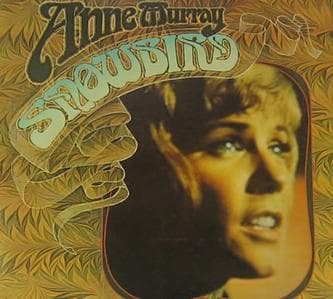
A sweet, folk-pop plea for freedom and release from heartbreak, using the image of a migrating bird as a metaphor for longed-for escape.
Do you remember that feeling, that deep, quiet ache that sometimes hits you in the winter, making you long for warmth, for a fresh start, for the ability to simply fly away from your troubles? For so many of us in the early 1970s, that feeling was perfectly captured in the voice of a young, unassuming Canadian singer: Anne Murray, with her signature song, “Snowbird.” It wasn’t loud or flashy; it was a gentle, almost melancholic whisper that seemed to speak directly to the restless heart of North America. It became her breakthrough, a monumental hit that etched her name permanently into the fabric of popular music.
Released as a single in mid-1970, “Snowbird” started its life humbly on Murray’s second studio album, This Way Is My Way, released in 1969. Its climb to ubiquity was a slow, steady migration, much like the bird it describes. In the United States, it achieved remarkable crossover success, becoming a rare multi-genre hit. It soared to Number 1 on the Billboard Adult Contemporary chart, peaked at a surprise Number 8 on the Billboard Hot 100 pop singles chart, and even reached the Top 10 on the Billboard Hot Country Songs chart. In her native Canada, the song was equally massive, hitting Number 1 on the RPM Country chart and Number 2 on the Top 100 chart. Its success was truly historic: “Snowbird” earned Anne Murray the distinction of being the first Canadian solo female artist to receive a Gold record in the United States.
The tender and poetic lyrics were penned by the late, great Canadian singer-songwriter Gene MacLellan, a humble artist who gifted the world this enduring ballad. The story goes that he wrote the song in a mere 25 minutes while walking along a wintry beach on Prince Edward Island. He watched a flock of snow buntings—small, hardy birds that migrate south for the colder months—and was inspired by the simple, innate freedom they possessed. The song became a profound metaphor: the desire of a heartbroken soul to shed the weight of emotional pain and fly away to a “land of gentle breezes,” just as the snowbird effortlessly escapes the cold. “The one I love forever is untrue / And if I could you know that I would / Fly away with you,” she sings, the lines resonating with anyone who has ever felt the sting of disappointment and wished for a clean slate.
There is a timeless beauty in Murray’s rendition—a purity in her alto voice, backed by a simple yet distinctive arrangement, featuring that oddly ethereal, almost sitar-like lead guitar. It’s a sound that defined the gentle, folk-pop side of the early 70s. For those of us who remember tuning in to shows like The Glen Campbell Goodtime Hour—where Murray was a regular—“Snowbird” wasn’t just a song; it was a quiet rebellion against the harder rock of the era, offering a moment of gentle reflection and peace. It’s a song tied to memories of simpler times, of long road trips, and of those first quiet moments of introspection where we realized that sometimes, the hardest thing to win in life is peace of mind.